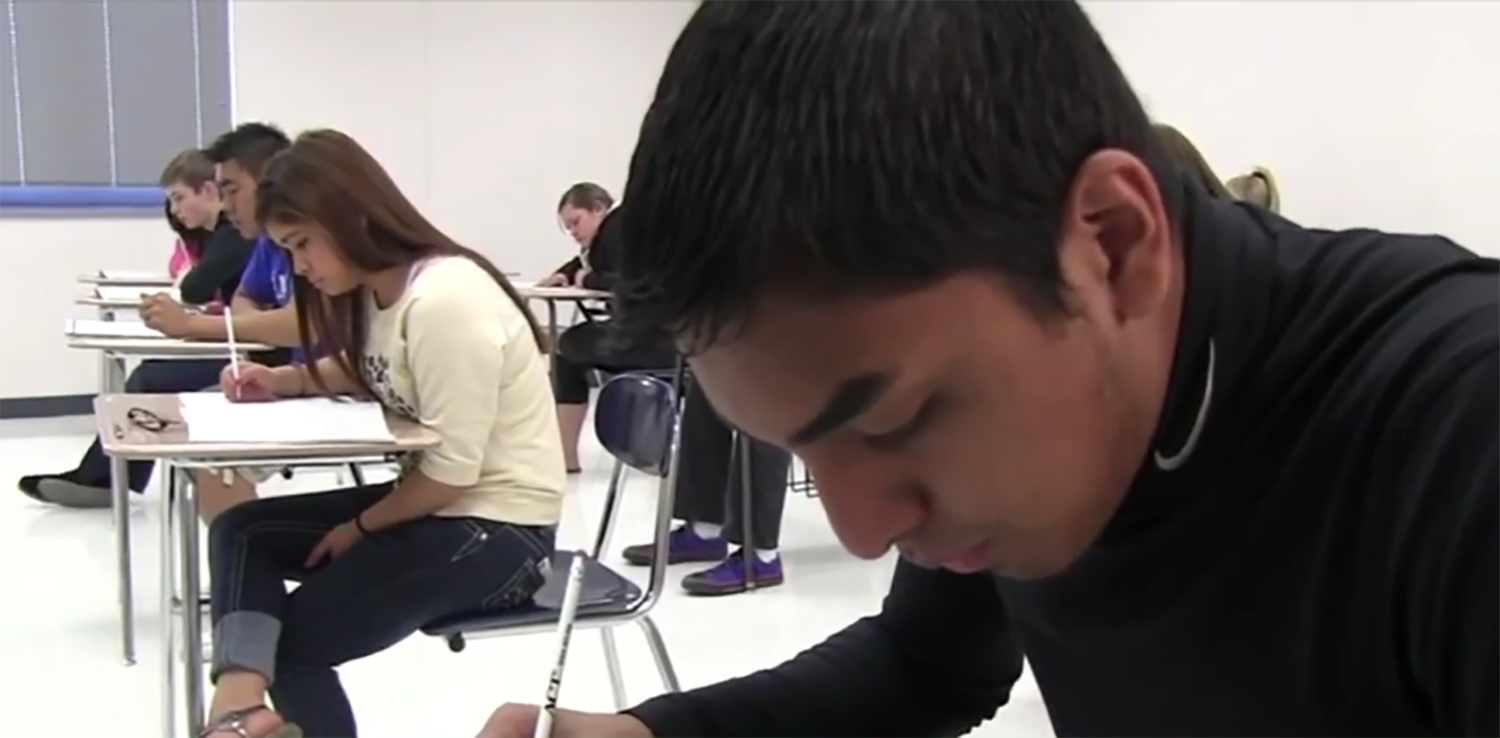OEA Awards and Scholarships

OEA is pleased to celebrate, honor, and reward the outstanding work of our members, affiliates, and individuals who have made special contributions to the improvement of public education.
For an application or nomination form, visit the OEA website at www.ohea.org, under AFFILIATE RESOURCES, and select the Grants & Scholarships link.
The deadline for all applications is January 31, 2025.
- OEA BLUE RIBBON ASSOCIATION AWARD | The OEA Blue Ribbon Association Award recognizes a local OEA affiliate for its demonstration of innovative problem- solving techniques and/or unique public relations and communication skills. CLICK HERE TO APPLY
- GLATT/HOLLOWAYS AWARD | OEA recognizes achievements in human relations and related intercultural activities that impact children, communities, the educational process, and/or the United Education Profession by presenting the OEA Glatt/Holloways — Human and Civil Rights Award. CLICK HERE TO APPLY
- DORIS L. ALLEN AWARD | OEA recognizes achievements in human relations and related intercultural activities that impact children, communities, the educational process, and/or the United Education Profession by presenting the OEA Doris L. Allen — Human and Civil Rights Award. CLICK HERE TO APPLY
- ESP AWARD | The Education Support Professional Award is presented each year to an OEA member whose activities reflect the contributions of education support professionals to public education. The recipient must have been a member of OEA for three years as of July 15 of the award year. CLICK HERE TO APPLY
- ESP ASPIRING TEACHER SCHOLARSHIP | The $4,000 ESP Aspiring Teacher Scholarship is presented each year to an ESP member currently enrolled in an undergraduate teacher education program in Ohio or a senior education student who has been formally accepted for graduate study in a master’s degree of education program at an accredited Ohio college or university. Applicants must be current members of the Ohio Education Association. CLICK HERE TO APPLY
- OEA FRIEND OF EDUCATION AWARD | The OEA Friend of Education Award recognizes a person and/or organization whose leadership, actions, and support have contributed to the improvement of public education on a statewide and/or national level. CLICK HERE TO APPLY
- JEAN KERSHAW SCHOLARSHIP | The $2,000 Jean Kershaw Scholarship is presented each year to a student member currently enrolled in an undergraduate teacher education program in Ohio or a senior education student who has been formally accepted for graduate study in a master’s degree of education program at an accredited Ohio college or university. Applicants must be current members of the Ohio Student Education Association and the NEA Aspiring Educator Program. CLICK HERE TO APPLY
- JFK SCHOLARSHIP | The $4,000 John F. Kennedy Scholarship is presented each year to an OEA member who is a career teacher enrolled in a graduate-level program and in need of financial assistance. CLICK HERE TO APPLY
- MARILYN CROSS SCHOLARSHIP | The $4,000 Marilyn Cross Scholarship is presented to an OEA member and career teacher enrolled in a graduate- level program directly linked to his/ her current area of licensure. CLICK HERE TO APPLY
- MEDIA AWARD FOR PUBLIC SERVICE | The Media Award for Public Service recognizes an individual and/or organization for a major contribution to the better understanding of the problems, progress, and needs of public education, or for programming of an outstanding educational nature. CLICK HERE TO APPLY
- OEA PEACE AND INTERNATIONAL UNDERSTANDING AWARD | OEA recognizes individual members and local associations who have furthered the cause of peace and international understanding by presenting the OEA Peace and International Relations Awards. CLICK HERE TO APPLY
Save
Save
Save
Save
Save
Save
Save
There’s still too much testing
Testing has long been misused to the point where it has lost any potential usefulness in the education of our nation’s children. Questions have been raised by parents and educators not only about the amount of testing that takes place, but also the developmental appropriateness. Then there’s the extent to which test results have created a very lucrative and profitable business market. See The Testing Industry’s Big Four and Pearson Rakes in the Profit.
Since at least 2011, there have been clear indications, cited by Dr. Linda Darling Hammond* in Getting Teacher Evaluation Right of significant errors in the use of Value Added Models in teacher evaluations. See http://bit.ly/getting-teacher-evaluation-right.
We do not need tests to tell us that poverty, inequitably funded schools, lack of access to technology, unaccountable charter schools, trauma, poor professional development, large class sizes and too much time on tests all negatively affect students.
More needs to be done to roll back mandatory assessments to a minimum federal level. That requires that we all advocate clearly and consistently with our elected officials using research and our personal experiences. The opportunity is here. Ask your local to conduct a testing audit. Adopt a resolution to limit vendor testing at the local level. Use all the tools at your disposal — phone calls, letters, emails, etc. — to persuade legislators, state board members and/or local board members on the issue. It’s going to take all of us.
* A Footnote – Dr. Linda Darling Hammond will be the keynote speaker, presenter and facilitator of a panel at the Midwest Symposium on Teacher Evaluation on September 30th at the University of Findlay. Consider attending and engaging further on this topic for change. Registration can be found at https://www.findlay.edu/education/graduate-programs/Midwestern-Teacher-Evaluation-Conference.
Watch OEA President Becky Higgins tell ABC6 what’s missing in Ohio’s report cards.
September 2017 Ohio Schools
- IN THIS ISSUE
- Educators and students at center of work to find solutions to Ohio’s growing opioid crisis
- The 2017 OEA Summer Academy
- Maysville EAs successfully organizes to become first Ohio local to win back salary schedule
- Legislative Update, Political Action, and more.
Moved recently? Contact the OEA Member Hotline to update the address on file at 1-844-OEA-Info (1-844-632-4636) or email, membership@ohea.org. Representatives are available Monday-Friday, from 8:30 a.m. to 6 p.m. | OhioSchools — Past Issues
![]()
![]() Oh Yes, We’re Social — Join the Conversation!
Oh Yes, We’re Social — Join the Conversation!
![]()
OEA says new state report cards don’t tell the whole story
COLUMBUS – September 25, 2017 – “The new report cards showing a statewide improvement in student test scores in many but not all areas of the state are a welcome development,” said OEA President Becky Higgins, “as students adjust to new curriculum standards. But the data in the report cards is complicated and doesn’t tell the whole story – namely the socio-economic factors that impact student performance.”
“There continues to be an overreliance on testing in measuring student growth,” said Higgins, “and OEA urges policy makers to find more ways to limit the role of standardized tests so that our students spend less time preparing for and taking tests and are given more time to reap the benefits of learning from our very committed educators across the state.”
“Ohio’s teachers and school support professionals remain focused on inspiring their students to learn and think creatively,” said Higgins. “This commitment to the success of every student regardless of where they live or what their family income may be can be seen every day in classrooms, libraries, cafeterias and school busses across the state.”
The Ohio Education Association (ohea.org) represents 124,000 teachers, faculty members and support professionals in Ohio’s public schools, colleges and universities
Follow OEA @OhioEA on Facebook, Twitter, YouTube, Instagram, and Pinterest.
Part II: Teaching, post-Charlottesville
By Dan Greenburg, Sylvania Education Association
As I plan my lessons for the start of a new school year, I hear student voices in the back of my head, asking “Why do we have to learn this?”
I use that question to guide what I teach and how I teach it.
I find the best way to address that question, without students even having to ask it out loud, is to link literature and writing lessons to things that are relevant to my students, to things that are happening in our world.
When we read Catcher in the Rye, we talk about how Holden Caulfield might have been impacted by social media. Would he have found a community of teenagers just as disillusioned with life as he was? When we read The Great Gatsby, we compare the American dream of the 1920s to today. We talk about college affordability and how that impacts the dreams and goals of students.
Relevancy is the key to my lessons.
Over the past year or so, however, I have found it increasingly challenging to remain relevant. As we become more polarized politically and culturally, I am finding it harder and harder to discuss controversial issues in class. I am actually afraid of the repercussions.
Last February, I taught my 10th grade English class a six-week lesson about persuasion and argumentation. As part of the unit, we talked about using facts to support claims, and the importance of using reliable sources. At the same time, we were studying this, a website called “Uncle Sam’s Misguided Children” published a blog titled: “Is an Ohio High School Teaching Kids to Hate the President.” That blog was about my school. It was clearly biased, and completely inaccurate in its portrayal of our school. It was shared close to 4000 times.
I thought: This is a teachable moment. What better way to demonstrate the problem with unreliable sources than this article, which completely misrepresents our school? Discussing how many times this article has been shared, I can explain how false information is easily circulated on the internet.
With those thoughts in mind, I copied the article and made it the focus of our lesson. I prefaced the lesson by saying we are not focusing on anyone’s feelings about the President or anyone’s political beliefs. This is about the reliability of sources.
I thought I had things covered. I did not.
The discussion seemed to be going very well in class, but within 25 minutes, I got a call from the guidance office to send a student down. I later found out this student sent a text to a parent, saying he was uncomfortable with the lesson. By the end of the period, my principal was in my classroom. At the end of the day, my co-teacher and I had to submit our lesson plans to the Assistant Superintendent.
I do not fault the district at all. They needed to proceed with due diligence. On an intellectual level, I completely understood this. It didn’t stop me, however, from being terrified about the process.
In the end, the district supported me. There was no reprimand. There was a good discussion with the Assistant Superintendent about the process.
There was a lasting consequence, however.
I am weighing the risk/reward of raising “touchy” subjects in my lessons. I even added a section to my course syllabus, stating that is never my intent to push political beliefs or ideologies from the front of the classroom. I will address the issue this coming week at open house, as well.
My American Literature class will start the year reading One Flew over the Cuckoo’s Nest. It presents so many opportunities to connect to our world today, particularly in the aftermath of the events in Charlottesville and the issues related to the taking down of Confederate statues and monuments. It’s not a matter of pushing a viewpoint; it’s a matter of engaging students on a relevant topic and fostering critical thinking skills.
It’s my hope that, by communicating my expectations and intent to parents and students at the beginning of the year, by letting parents and students know I am willing to talk about and address their concerns, that we’ll be able to have thoughtful dialogue in class throughout the year.
I’m sure there will be the occasional “why do we have to learn this?” However, I’m optimistic that connecting lessons to issues that matter to students will greatly reduce the number of times the question get asked.
Read Part I: Teaching, post-Charlottesville
Save
Save
Save
Part I: Teaching, post-Charlottesville
By Julie Rine, Minerva Education Association
If we haven’t already, many of us will soon be giving a lecture about the importance of being respectful to others, following the rules, and being nice. We are going to discuss how name-calling is not appropriate, and how we should all stand up for anyone who is being bullied or intimidated or hurt. During that first day of school lecture, I often tell my high school students that we can’t control what happens in the world outside of our school, but we can control the atmosphere in Room 201. I emphasize that it will be a place where we can all expect to be accepted and valued, a place where we can feel safe and free from violence or harsh words.
This year when I give that talk, it will mean more than ever. For just at the time when school is beginning for most kids and teachers, our country has seen powerful scenes of breaking those rules in full technicolor, complete with torches and clubs and shields, chants and profanity and ethnic slurs, and in the end, murder.
Sitting in our classrooms listening to our rules and expectations are going to be students of various ages, backgrounds and beliefs. It’s not our place to raise those kids or instill our values in them. That job belongs to their families, but teachers can have a powerful impact as well. What exactly is our role when it comes to teaching values? Certainly the concepts of respect, tolerance, and fairness are not strictly liberal or conservative values. Teaching our children that it is not acceptable to label, judge, or mistreat someone based on their skin color, religion or nationality should not be an area of disagreement between Republicans and Democrats.
A former teacher of James Fields, the driver of the car that plowed into the protesters in Charlottesville, said that he felt he had failed as a teacher.* I do not think he failed; he did everything in his power to expose his students to the atrocities of the Nazis in Europe and to relate his lessons to current events. However, his comment did make me reconsider my own decisions as a teacher.
When teaching To Kill a Mockingbird or Maus (a book about a Holocaust survivor’s experience), I try to fit in current articles about the issues of race and prejudice that arise in the books. But when I first started teaching those texts, I did more than squeeze in those connections. My students used to engage in a plethora of activities to help them further analyze how the ugliness of the past can still influence the events of today.
So what changed? High-stakes standardized testing came along. Each year I have left out more and more of the meaningful extension activities in order to allow extra time for test prep. What if my actions have had more dire consequences than I thought? Maybe it’s time that test prep falls into the “squeezing in” category. Maybe it’s time to stop worrying about growth measures and keep or even expand the material and activities that help grow decent human beings.
To be clear, the overemphasis on testing has not lead to a bumper crop of racists and white supremacists, and the teachers who drop time-consuming but worthwhile material to make room for test prep are not to blame for any future abhorrent actions of their students. But could we be doing more to teach tolerance and acceptance?
The ACLU, who went to bat for the organizers of the recent Charlottesville event after their permit was revoked, argues that freedom of speech should be defended for everyone, even those whose views are repugnant to most people. Ideally, everyone gets a voice, and then everyone can form his or her own decision, after “reasonable discourse and debate.”**
Isn’t it part of our job to teach how to engage in reasonable discourse and debate? We can do this while analyzing topics other than politics, of course, but maybe it’s time to stop backing away from political topics when they arise within the context of our lessons. When students start discussing their political views in our classrooms, maybe we should guide those conversations instead of shutting them down to avoid a heated discussion. After all, it is possible to disagree with someone without espousing hatred for others or inciting violence, and we should be modeling that. Furthermore, there is a difference between those who advocate for the right to dominate or subjugate others and those who stand up for the rights of all people to live peacefully without fear of unjust oppression. We need to make that distinction clear to our students, now more than ever.
A few weeks ago, teachers across the country recognized the faces of white supremacists carrying torches on a hot Friday night in Virginia, and they remembered them not as men, but as kids, sitting in their classrooms on the first day of school listening to the Rules and Expectations lecture about respecting others. I can’t imagine seeing one of my students, past or present, at one of those rallies as a participant. But if I do, I don’t want to feel that I could have done anything differently to elicit a better outcome in the forming of his beliefs.
When there is a back-to-school lecture on rules and expectations, let us mean it and let us enforce it, even if it means having some uncomfortable conversations. When there is a way to incorporate current issues while studying the difficult lessons of the past, let us connect the two. When there is hate speech, let us not be weak-willed and call it a mere difference of opinion. Let us be clear that it is a despicable opinion that is not acceptable in our schools or in our streets. When there are teachable moments relating to political issues, let us embrace them. Let us model civil discourse, but when there is racism or prejudice, blatant or subtle, let us confront it without ambiguity.
Debates about freedom of speech, whether or not statues should stay or go, and what to do with the Confederate flag in public places will keep cable news shows busy for a long time to come. But there is a clear right and wrong when it comes to hate speech, a definite line that should not be crossed, and that line must not be erased in our classrooms.
Read Part II: Teaching, post-Charlottesville
*”Teacher says suspected Charlottesville driver James Alex Fields Jr ….” 13 Aug. 2017, http://www.post-gazette.com/news/nation/2017/08/13/James-Alex-Fields-Charlottesville-killing-driver-car-crowd-white-nationalist-rally/stories/201708130175. Accessed 21 Aug. 2017.
**”Why the ACLU defends white nationalists’ right to protest – Vox.” 12 Aug. 2017, https://www.vox.com/policy-and-politics/2017/8/12/16138326/aclu-charlottesville-protests-racism. Accessed 17 Aug. 2017.
Save
Save
Save
Save
Save
Save
June 2017 Ohio Schools
- IN THIS ISSUE
- OEA student members and new educators join together to “Fuel the Fire to Inspire”
- why local involvement in school board elections matters
- Trump-DeVos budget includes devastating education funding cuts
- In Memoriam; Legislative Update, Association news, and more
Moved recently? Contact the OEA Member Hotline to update the address on file at 1-844-OEA-Info (1-844-632-4636) or email, membership@ohea.org. Representatives are available Monday-Friday, from 8:30 a.m. to 6 p.m. | OhioSchools — Past Issues
![]()
![]() Oh Yes, We’re Social — Join the Conversation!
Oh Yes, We’re Social — Join the Conversation!
![]()
OEA applauds Governor’s vetoes of cap on Medicaid expansion and charter school measures, but is disappointed by other actions
 COLUMBUS – July 1, 2017 – “The legislature’s attempt to put a cap on Medicaid expansion would have had a profoundly negative impact on our students and their families,” said Becky Higgins, President of the Ohio Education Association (OEA). “We strongly support the Governor’s veto of this provision. We urge House and Senate lawmakers to oppose any effort to override this veto. Jeopardizing access to health care for 500,000 Ohioans is unacceptable.”
COLUMBUS – July 1, 2017 – “The legislature’s attempt to put a cap on Medicaid expansion would have had a profoundly negative impact on our students and their families,” said Becky Higgins, President of the Ohio Education Association (OEA). “We strongly support the Governor’s veto of this provision. We urge House and Senate lawmakers to oppose any effort to override this veto. Jeopardizing access to health care for 500,000 Ohioans is unacceptable.”
“We also thank the Governor for holding firm on charter school accountability by vetoing provisions that would have weakened standards for charter school sponsors,” said Higgins.
“At the same time, we are disappointed that the Governor and legislature missed an opportunity to improve the Resident Educator program by eliminating the Resident Educator Summative Assessment (RESA),” Higgins added, “but we appreciate the maintenance of mentoring support for new educators.”
“Lastly, it is unfortunate that the Governor chose to veto the paper testing option for local school districts,” said Higgins. “Without this option, some students will be measured not only by their command of the subject on which they are being tested, but also by their ability to master technology in which they are not always proficient.”
The Ohio Education Association (ohea.org) represents 123,000 teachers, faculty members and support professionals in Ohio’s public schools, colleges and universities
Follow OEA @OhioEA on Facebook, Twitter, YouTube, Instagram, and Pinterest.
Statement from the Ohio Education Association on the House budget
COLUMBUS – April 25, 2017 – “We appreciate the addition of $90 million in education funding in the House budget given the tight revenue situation, and we are glad the House listened to the voices of educators and removed the unnecessary and unworkable teacher ‘externship’ proposal,” said OEA President Becky Higgins. “We look forward to continuing to work with members of the House and Senate to ensure equitable and adequate funding for all students, no matter their zip code or family income.”
“We also encourage the House and Senate to address Ohio’s looming graduation crisis by incorporating the recommendations of the Graduation Requirements Work Group and State Board of Education in the budget.”
The Ohio Education Association (ohea.org) represents 123,000 teachers, faculty members and support professionals in Ohio’s public schools, colleges and universities
Follow OEA @OhioEA on Facebook, Twitter, YouTube, Instagram, and Pinterest.
April 2017 Ohio Schools
- IN THIS ISSUE
- Lancaster educators advocate for student success by making sure kids have breakfast at school
- Huron County locals join together to host a booth at the fair to connect with the community, each other, and to support public education
- Legislative update, Association news, and more
Moved recently? Contact the OEA Member Hotline to update the address on file at 1-844-OEA-Info (1-844-632-4636) or email, membership@ohea.org. Representatives are available Monday-Friday, from 8:30 a.m. to 6 p.m. | OhioSchools — Past Issues
![]()
![]() Oh Yes, We’re Social — Join the Conversation!
Oh Yes, We’re Social — Join the Conversation!
![]()





